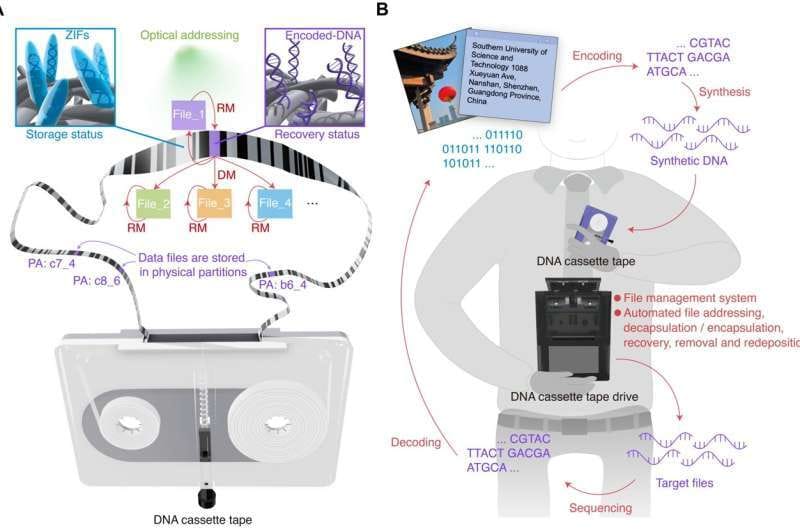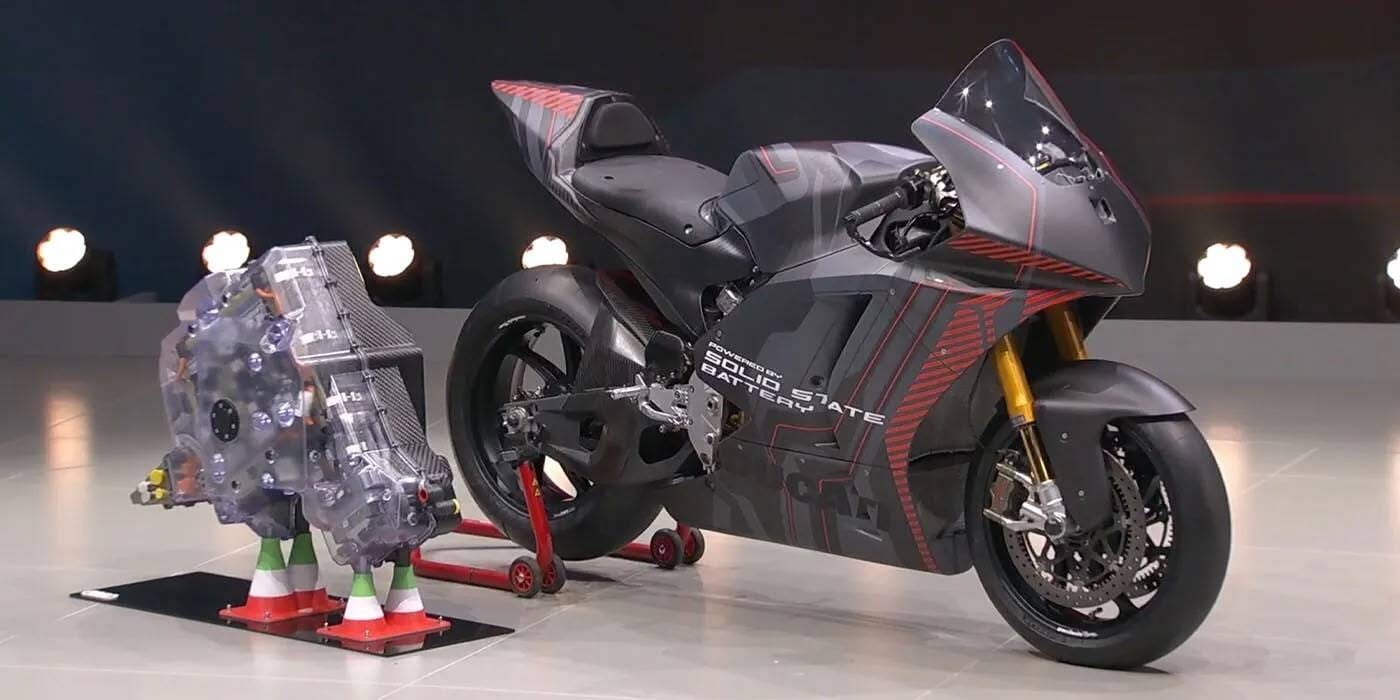September 15, 2025
It's Monday. Oracle just landed the biggest AI infrastructure deal in history - a $300 billion contract with OpenAI that instantly made founder Larry Ellison the world's richest person, surpassing Elon Musk with a $405 billion fortune.
How will this massive shift toward AI computing infrastructure change which companies dominate the next decade?
In today's recap:
Larry Ellison's overnight rise to richest person
Scientists create DNA cassette tapes for storage
Helicopter rides join your Uber app menu
First real-world solid-state battery powers motorcycle
AI tracking reveals space aging secrets
ORACLE
Larry Ellison tops rich list after AI deal
Recaply: Oracle's founder Larry Ellison just became the world's richest person after his company landed a massive AI deal with OpenAI. The 81-year-old tech veteran watched his wealth jump by over $100 billion in a single day as Oracle's stock soared 43%. This incredible surge came after news broke about Oracle's $300 billion contract to power ChatGPT and other AI services over five years.
Key notes:
Ellison's net worth hit $405 billion, surpassing Elon Musk's $384 billion fortune.
Oracle stock jumped 43% in one day, the biggest surge since 1992.
The $300 billion OpenAI deal starts in 2027 and runs for five years.
Oracle will provide 4.5 gigawatts of computing power for AI operations.
This marks Oracle's biggest transformation since its database heyday.
Impact: This wealth shift shows how AI is reshaping not just technology but global fortunes. Ellison's rise proves that traditional tech companies can reinvent themselves for the AI age. As businesses rush to adopt AI, the companies providing the computing backbone are reaping massive rewards.
TOGETHER WITH 1440 MEDIA
Looking for unbiased, fact-based news? Join 1440 today.
Join over 4 million Americans who start their day with 1440 – your daily digest for unbiased, fact-centric news. From politics to sports, we cover it all by analyzing over 100 sources. Our concise, 5-minute read lands in your inbox each morning at no cost. Experience news without the noise; let 1440 help you make up your own mind. Sign up now and invite your friends and family to be part of the informed.
TECH RESEARCH
Scientists create DNA storage cassettes
Recaply: Scientists in China just solved our data storage crisis with something that sounds like science fiction. Researchers at Southern University of Science and Technology created DNA cassette tapes that work like old-school music tapes but store digital files instead.
Key notes:
One human cell's DNA holds 3.2 GB - that's 6,000 books or 2 movies worth of data.
Physical tape made from polyester-nylon blend with barcode patterns for file organization.
Protective crystalline coating keeps DNA stable for thousands of years without electricity.
Successfully tested by converting and retrieving digital images from the tape.
Could replace massive server farms with compact, sustainable storage solutions.
Impact: This breakthrough transforms how we think about data storage. While hard drives fill entire buildings and consume massive energy, DNA cassettes could store the world's information in a space the size of a shoebox, lasting millennia without power.
UBER
Uber adds helicopter rides to app menu
Recaply: Your ride-sharing app is getting a serious upgrade. Uber is partnering with Joby Aviation to bring helicopter rides directly to your phone screen starting next year. This means booking a helicopter trip will be as simple as ordering your morning coffee.
Key notes:
Helicopter rides will be available through the regular Uber app starting 2026.
Service covers major routes like NYC airports, Manhattan, and the Hamptons.
Blade flew over 50,000 passengers in 2024 across New York and Europe.
Booking process will be seamless with dedicated passenger lounges.
Future electric air taxis will carry 4 passengers at 200 mph speeds.
Impact: This move transforms luxury air travel from exclusive to accessible. What once required special bookings and insider knowledge now becomes a simple app tap, potentially changing how we think about urban transportation.
QUANTUMSCAPE
QuantumScape makes history with live EV demo
Recaply: QuantumScape just crossed a major milestone that battery experts have been waiting years to see. The company partnered with PowerCo to showcase the world's first live demonstration of solid-state batteries actually powering a real vehicle. They chose a Ducati V21L race motorcycle for this historic moment at IAA Mobility in Munich. This marks the first time anode-free solid-state batteries moved from lab experiments to actual road-ready vehicles.
Key notes:
Company's QSE-5 battery cells delivered 844 Wh/L energy density in real-world conditions.
Motorcycle charges from 10% to 80% in just over 12 minutes using new technology.
Partnership includes $131 million investment from Volkswagen's PowerCo over two years.
Demonstration used batteries made with QuantumScape's proprietary Cobra production process.
QuantumScape stock jumped more than 20% following the successful vehicle debut.
Impact: This demonstration proves solid-state batteries are ready to leave the laboratory and enter real vehicles. The technology promises safer, faster-charging, and longer-lasting batteries that could finally make electric vehicles appealing to mainstream consumers who worry about charging times and safety.
UC SAN DIEGO
Space AI study unlocks aging secrets
Recaply: Researchers used AI-powered tracking systems on SpaceX missions to discover that space travel accelerates stem cell aging in humans. UC San Diego scientists sent blood-forming stem cells to the International Space Station for up to 45 days and watched them age faster than cells on Earth.
Key notes:
AI nanobioreactors tracked stem cells in real-time during space missions.
Cells showed DNA damage and shortened chromosome ends after spaceflight.
Stem cells lost ability to make healthy new blood and immune cells.
Some aging damage reversed when cells returned to Earth-like conditions.
Findings help understand astronaut health risks and aging on Earth.
Impact: This breakthrough bridges space medicine and aging research. As commercial space travel expands, understanding how microgravity and radiation affect our bodies becomes crucial for protecting future space travelers.
NEWS
📰 What matters in Tech right now?
Nvidia unveiled Rubin CPX, a new GPU designed for massive-context AI processing with 128GB memory, delivering 30 petaFLOPs of compute by late 2026.
SpaceX plans to deliver over 100 tons to orbit by 2026 using upgraded Starship version 3, following successful August test flight with payload deployment.
Exxon Mobil developed synthetic graphite technology that extends EV battery life by 30%, with several manufacturers testing the material for 2029 production.
NASA banned Chinese nationals from working on space programs starting September 5, affecting hundreds of researchers amid intensifying US-China competition.
Lyft launched its first commercial robotaxi service in Atlanta with May Mobility, using Toyota Sienna vehicles and plans to scale to thousands of vehicles.
Oklo announced plans for America's first private nuclear fuel recycling facility in Tennessee, investing $1.68 billion and creating 800+ jobs by 2030s.
Xpeng plans to launch affordable Mona electric vehicles internationally in 2026, starting with Europe after reaching 60 global markets ahead of schedule.
EVENTS
Adobe MAX 2025 : Oct 26 – Oct 30, 2025 · Los Angeles, California, USA
Tech Week 2025: Oct 06 – Oct 12, 2025 · San Francisco, California, USA
SPLASH 2025: Oct 12 – Oct 18, 2025 · Singapore
Oracle AI World 2025 : Oct 13 – Oct 16, 2025 · Las Vegas, Nevada, USA
Ada Lovelace Day 2025 : Oct 14, 2025 · Global
Tech in Asia Conference 2025 : Oct 22 – Oct 23, 2025 · Jakarta, Indonesia
Dreamforce 2025 : Oct 14 – Oct 16, 2025 · San Francisco, California, USA
NVIDIA GTC 2025 : Oct 27 – Oct 29, 2025 · Washington, D.C., USA
🧡 Enjoyed this issue?
🤝 Recommend our newsletter or leave a feedback.
How'd you like today's newsletter?
Cheers, Jason










